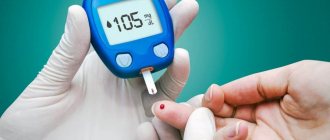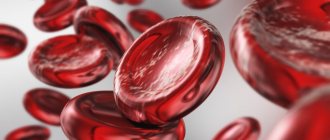What is cortisol
Cortisol is produced in the adrenal cortex.
control body blood sugar levels
metabolism, acting as an anti-inflammatory agent
affects memory
controls the balance of salt and water in the body
affects blood pressure
helps pregnant women with fetal development
responsible for starting the processes involved in childbirth
Blood cortisol levels fluctuate throughout the day, rising in the morning when we wake up and falling throughout the day. This is called the circadian rhythm. In people who work at night, this pattern is reversed, so the timing of cortisol release is clearly linked to daily activity patterns.
Find something you like
Learning to relax is really helpful, especially if you want to manage stress. Taking up a new hobby is one way that can also help you learn a new skill. It doesn't matter what you do, as long as you enjoy it.
Photo by Steve Johnson / Unsplash
American scientists conducted a study of 50 former combatants who suffered from depression, post-traumatic stress disorder or substance abuse. They spent a month doing gardening and occupational therapy. The results showed a decrease in stress and a decrease in cortisol.
Think about what kind of activity you would like - perhaps drawing, music or gardening.
If the level of the hormone cortisol is elevated
Symptoms of elevated cortisol hormone:
rapid weight gain on the face, chest and abdomen, which contrasts with slender arms and legs
flushed and round face
high blood pressure
osteoporosis
skin changes (bruising and purple stretch marks)
muscle weakness
mood swings that manifest as anxiety, depression, or irritability
increased thirst and frequent urination
High cortisol levels over a long period of time can also lead to a lack of sex drive, and in women, periods may become irregular, less frequent, or stop altogether.
Additionally, there is a link between elevated or abnormal cortisol levels and a number of mental illnesses such as anxiety and depression.
Identify stress triggers
A threat to life or a change in environment are stimuli that provoke anxiety and can become a trigger or stressor. Such irritants include physical pain, problems in relationships or at work, and financial difficulties. It is, of course, impossible to predict when you will hit your foot on a chair. But some types of triggers can be learned to recognize.
5 reasons why health and well-being depend on love
One of the first steps to relieve stress is to understand what causes it. I don’t want to remember or think about unpleasant situations again. But a stress diary will help you recognize irritants so you can learn to react less to them. It is not necessary to remember all the details of an unpleasant event - it is enough to write down the fact and try to analyze why what happened caused you a negative reaction.
Using a stress diary can help you find practical ways to deal with these situations. For example, avoid quarrels, learn to build personal boundaries in relationships and at work, and say “no” in time. Moreover, you will be able to identify hidden causes of stress such as hanging on social networks.
When should you take a cortisol test?
With high or low blood pressure, with high blood sugar, with fat deposits in the waist area, decreased muscle mass, fatigue, pain in the abdominal cavity, the appearance of age spots on the skin, etc.
Along with cortisol levels, testing for the levels of the sleep hormone melatonin in the body is recommended - the principle of the examination is the same.
Prices for determining cortisol and melatonin levels in Slovenia Krka Thermae
Cortisol - daily profile - 4 saliva samples: 141.75 euro
Melatonin: 103.95 euro
Cortisol and melatonin: 195.51 euro
general information
The hormonal substance takes part in certain functional processes taking place in the body. With its help, protein, carbohydrate and lipid metabolism is controlled. The element responds to the performance of striated muscles, smooth muscle tissue of the myocardium, etc. Cortisol is involved in the functioning of the immune system, with its help infectious and inflammatory processes are stopped, and the effectiveness of histamine, which is activated during the development of allergies, is reduced.
The substance is produced by the adrenal glands and is released into the bloodstream in a bound and unbound state:
- in the first case, it is in an inactive state and is considered a reserve, which will be consumed by the body as needed;
- in the second, it takes part in various processes, including regulating the hypothalamus-pituitary-adrenal system and reducing the production of glucocorticosteroids.
Changes in the level of the hormone Cortisol provoke the development of disorders in the endocrine department, disruptions in the body, and the functioning of internal organs.
Information about the hormone contained in medicine is used to identify ongoing pathological processes. Urine and blood tests are used for the study; to obtain reliable results, a test for ACTH is performed in parallel. This approach allows us to determine the presence of adrenal insufficiency - the first or secondary type. The primary is caused by damage to the organ’s cortex, the second is caused by a decrease in the production of ACHT by the pituitary gland.
CASE FROM PRACTICE
A woman came to the GGP program in an extremely stressful state. She was constantly anxious and tense due to stress at work. Only alcohol helped her cope with such a load. She simply could not calm down her excitement and fall asleep without a couple of glasses.
An important part of the program is meditation, which participants receive in recordings and have constant access to.
During the program, our client’s condition changed dramatically due to nutrition, physical activity and the entire system in general. But the main discovery and powerful healing tool for her was meditation.
This woman shared with us that she stopped drinking alcohol and started meditating every time she felt an impending wave of tension. She became much calmer, changed in appearance - younger, fresher. She returned to full, refreshing sleep. She learned to smile again and enjoy all manifestations of life.
Complexes with this research
Adrenogenital complex Analysis of excess male hormones in a woman 2,560 R Composition
Stress complex Assessment of the state of the body during stress 4,310 R Composition
Preventive check-up Universal annual preventive screening RUB 11,960 Composition
IN OTHER COMPLEXES
- Three important indicators for a man RUB 1,810
- Metabolic profile RUB 5,900
- Advanced anti-aging diagnostics in postmenopause RUB 29,230
- Women's anti-aging diagnostics RUB 12,070
- Anti-aging diagnostics in postmenopause RUB 12,630
Prevention measures
It is easier to stabilize cortisol levels with the help of preventive measures. Recommendations include:
- adherence to healthy eating rules;
- normal sleep lasting at least 7 hours (before going to bed, it is recommended to ventilate the room and turn down the heating devices);
- daily exercise;
- yoga, meditation;
- trips to nature (harmony with the outside world helps stabilize the psycho-emotional background);
- abstaining from irritation and stress;
- aromatherapy.
By following simple rules, you can learn to control the stress hormone.
References
- Belaya, Zh.E., Rozhinskaya, L.Ya., Melnichenko, G.A. Modern view on screening and diagnosis of endogenous hypercortisolism. Problems of endocrinology, 2012. - V. 4. - P. 35-41.
- Federal clinical guidelines. Itsenko-Cushing's disease: clinical picture, diagnosis, differential diagnosis, treatment methods. Russian Association of Endocrinologists, 2014.
- Wilson, D. McGraw-Hill Manual of Laboratory and Diagnostic Tests 1st Ed Normal, 2007.
- Dorn, L., Lucke, J., Loucks, T. et al. Salivary cortisol reflects serum cortisol: analysis of circadian profiles. Ann Clin Biochem, 2007. - Vol. 44(3). — P. 281-84.
- Nicolson, N. In L. J. Luecken and L. C. Gallo. Measurement of Cortisol. In: Handbook of Psychological Research Methods in Health Psychology. Sage Publications, 2008, pp. 37–74.
Diet
To regulate cortisol, it is recommended to follow a low-carbohydrate diet. Its essence is identical to the basic rules of healthy eating. There are no strict prohibitions and fasting in it.
The principle of the table is moderate consumption of carbohydrates. They cannot be completely excluded; problems with kidney function, hair, skin and mood may arise. Flour products, fresh baked goods, sugar, and starchy foods are subject to restrictions. The menu less often includes: potatoes, corn, pasta, cereals, bread, soda, etc. When following a diet, you need to consume at least 2 liters of purified water. Nutritionists also advise taking vitamin complexes to balance micro and macroelements.
The frequency of meals is 4-5 times in small portions. Recommended products for a low-carb table:
- grapefruit;
- fresh herbs;
- vegetables fruits;
- lean meats;
- seafood;
- natural yogurt, kefir, yogurt;
- oat bran;
- hard cheeses.
You should exclude fatty, smoked foods, processed foods, and alcohol from your diet. You also need to limit the amount of coffee.
Lab tests
A referral for a blood (urine) test to determine cortisol levels is prescribed in the presence of the following health problems:
- hypertension;
- suspicion of ACTH (osteoporosis, progressive tumor);
- sudden weight loss/gain;
- physical weakness, fatigue;
- thinning of the skin, formation of stretch marks;
- in the treatment of adrenal glands.
Women should be tested for cortisol if they experience symptoms such as excessive hair growth on the body and face, recurrent thrush, or problems with the menstrual cycle. Children are sent for analysis if they experience premature puberty (regardless of gender).
Cortisol levels are checked in acute depressive states. Usually with this course of the disease it increases greatly.
Other indications for laboratory testing include:
- slow wound healing;
- increased/decreased glucose levels;
- the appearance of swelling and bruising;
- deficiency or excess of potassium in plasma;
- decreased blood pressure, etc.
The hormone is determined by biochemical and general blood tests. Additionally, urine is examined (general analysis), and if necessary, saliva is also taken from the patient.
A trip to the laboratory should be planned in the morning. This is approximately from 7-00 to 10-00. You should refuse to eat before taking blood. One day before donating blood and urine, physical and emotional stress should be avoided. This way you can get a reliable result. When preparing for the procedure, you need to give up alcohol and tobacco. Half an hour before the test, the patient should be in absolute peace.
To obtain adequate information about the level of cortisol and changes in its concentration, repeated samples of biomaterial should be taken. If necessary, additional studies are offered:
- if Cushing's syndrome is suspected, morning and evening tests are taken;
- Dexamethasone stress tests are prescribed (for 1-2 days the patient takes hormonal drugs that reduce the production of cortisol);
- To determine free cortisol, urine collected per day (100-120 ml) is taken.
The hormone level is determined primarily by the CLIA (automated chemiluminescent immunoassay) method. The result is accurate and fast. The research data is known the very next day. The cost of the procedure is 700-900 rubles. With express processing of biomaterial (in 2-3 hours), the price increases to 1200-1400 rubles.
Norms of hormone levels in the blood of women by age
Women's and men's reactions to stress differ. Recovery from experiences in men occurs much faster, and glucocorticoid levels decrease over a shorter period. After stress, women take longer to return to normal; their hormonal levels decrease gradually, which affects their health.
The concentration of cortisol occurs even more strongly with age and in working women with children.
Cortisol (the norm for women by age is not much different from that for men) is produced per day in the range of 15-30 mg. The morning norm, when peak production occurs, is 101-536 nmol/l, and the evening dose of the hormone is 80-478 nmol/l. During pregnancy, women experience a 2-5 fold increase in levels in the 3rd trimester.
Cortisol is a hormone necessary for the body. The norm for women changes with age, and there are other factors.
Studies have shown that working women's cortisol levels increase greatly in the evenings, when they also have to do housework. In men, the reduced level of the hormone persists in the evening.
Cortisol levels in women by age:
| Age groups | Normal blood level nmol/l | Free cortisol in urine |
| Teenagers from 12 to 15 years old | 75 – 630 | 55–270 nmol/day |
| Adults from 16 to 45 years old | 101 — 535 | 30 – 270 nmol/day |
| After 45 years | less than 130 | 35–300 nmol/day |
| Pregnant | Exceeds the value from 2 to 5 times the norm | |
A sharp increase in the hormone does not have a critical effect on health. 1-2 hours after experiencing shock, the hormone half-disintegrates, its excess is inactivated by the liver and excreted in the urine.
A surge in hormone levels often occurs during injuries, infections, operations, or when glucose levels decrease. A persistently high level within 552 nmol/l indicates the development of Cushing's syndrome. At higher concentrations, adrenal cancer is often diagnosed.








